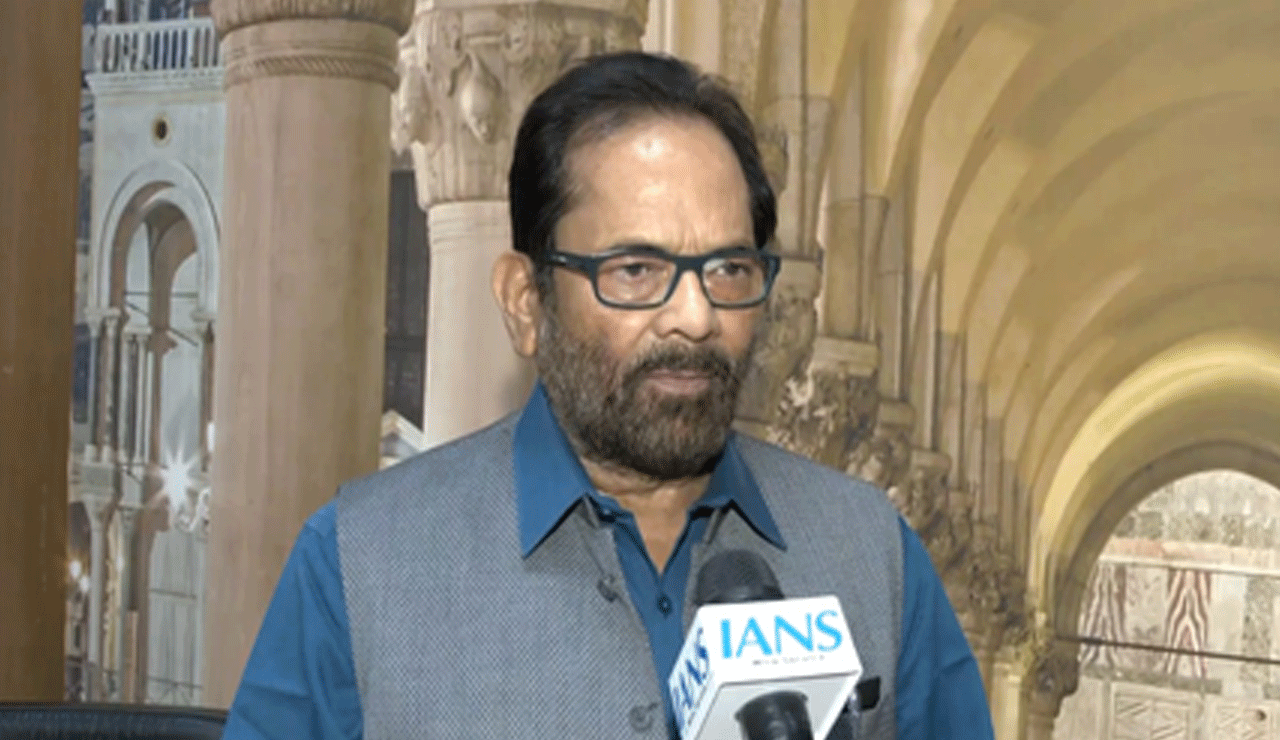BJP Criticizes Mamata Banerjee’s Meeting with Muslim Leaders Amid Waqf Act Protests
West Bengal Chief Minister Mamata Banerjee has come under sharp criticism from the BJP following her recent meeting with Muslim clerics, imams, and Ulemas at the Netaji Indoor Stadium.

New Delhi: West Bengal Chief Minister Mamata Banerjee has come under sharp criticism from the BJP following her recent meeting with Muslim clerics, imams, and Ulemas at the Netaji Indoor Stadium. This outreach was aimed at fostering cooperation among Muslim leaders to restore peace after violent protests erupted in Murshidabad over the controversial Waqf Act.
Table of Contents
BJP Questions Mamata’s Intentions and the Message She Is Sending
The BJP raised concerns about the timing and nature of Banerjee’s meeting with Muslim leaders, especially in light of the violence and arson that swept through Murshidabad. Senior BJP leader Mukhtar Abbas Naqvi questioned the message Banerjee was sending by engaging only with the Muslim community while ignoring the other community affected by the unrest.
Also Read:Mamata Banerjee to Modi: Don’t Let Divisive Agendas Threaten National Unity
Naqvi, speaking to IANS, said, “There is unrest in several areas, especially in West Bengal, which is deeply concerning. It appears that the state government has surrendered to criminal and communal forces. By organizing this meeting with the same elements, what message is Mamata Banerjee trying to convey—one of trust, or of fear?”
Allegations of Administrative Failure
Naqvi also accused the Mamata government of failing to address the violence effectively. He pointed out that many residents were fleeing violence-stricken areas, including Murshidabad, and suggested that this exodus indicated a breakdown of the state’s constitutional machinery.
“People are fleeing right under the nose of a constitutional government. This shows how governance has been collapsed,” Naqvi said.
The BJP has long accused the TMC-led government of prioritizing appeasement politics for electoral gain rather than taking decisive action against radicals and extremists involved in the violence. The party also pointed out that the violence in Murshidabad led to the tragic loss of three lives, further exacerbating tensions.
The BJP’s Criticism of Mamata’s Approach
The BJP’s criticism of Banerjee’s outreach to Muslim clerics and imams aligns with broader concerns regarding her handling of communal tensions in the state. Critics argue that the meeting is part of a larger narrative of appeasement politics in West Bengal, particularly as the state heads towards elections.
Naqvi also expressed dissatisfaction with the Mamata administration’s response to the unrest, alleging that it had failed to confront the radicals responsible for the violence, thereby allowing the situation to worsen.
Enforcement Directorate’s Actions on the National Herald Case
In addition to commenting on Mamata’s actions, Naqvi also weighed in on the recent actions of the Enforcement Directorate (ED) in the National Herald case, which has drawn sharp criticism from the Congress.
Congress leaders Sonia Gandhi and Rahul Gandhi have been named in the chargesheet, and Naqvi responded to Congress’s protests by claiming, “The Congress is trying to portray corruption as a revolutionary act. They carry this act of fraud like a badge of honour, claiming victimhood. But this is not about political vendetta—it’s a matter that has already been investigated and guided by court orders.”
As the political landscape in West Bengal heats up over the Waqf Act protests and the government’s response to the violence, the BJP’s accusations against Mamata Banerjee signal a growing divide between the ruling TMC and opposition parties. The controversy surrounding the handling of Murshidabad’s unrest is expected to remain a key issue as the state moves forward in its political and social challenges.
